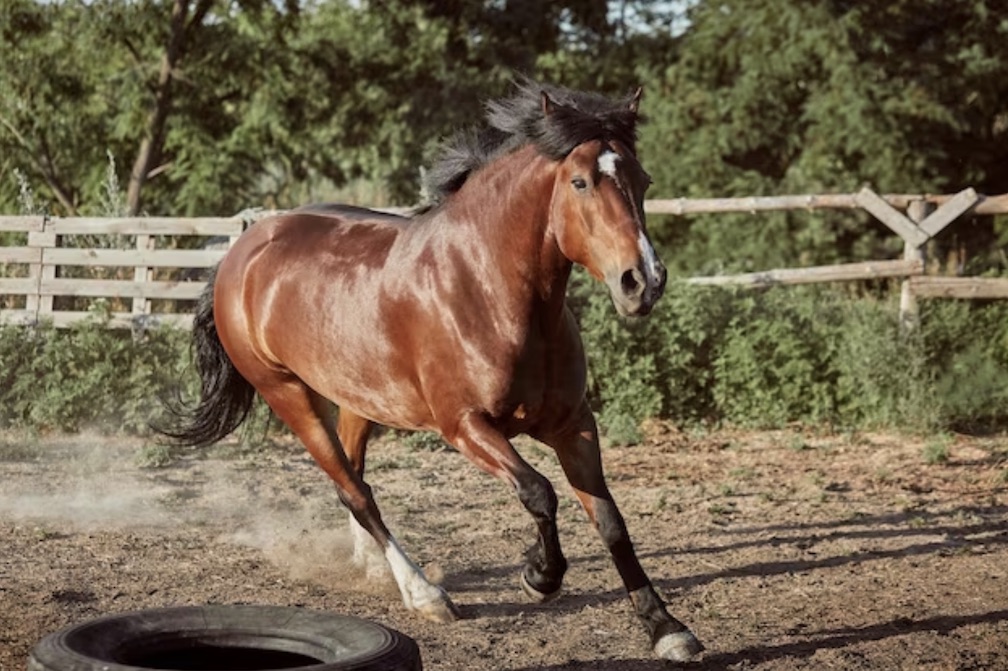Beet Pulp as a Holistic Treatment for Horse Ulcers
- Written by The Times

Equine ulcers are a common problem in horses that can cause a lack of stomach acid protection resulting in erosive damage to the stomach lining. Stressful situations such as competition, travel, changes in diet and environment, illness and injury can trigger gastric acid production and lead to ulcer formation. Ulcers can have serious consequences for horses, including poor performance and even colic or death. Fortunately, there are a number of diagnostic procedures and treatment options available to help horses suffering from ulcers, including feeding beet pulp.
Beet pulp is becoming an increasingly popular feed for horses with ulcers as it is a natural, cost-effective way to provide additional fibre and calories for horses that may be struggling with stomach issues. It is easy to digest, high in energy and contains essential nutrients such as calcium, phosphorus, magnesium, and potassium. Additionally, it has the potential to act as a source of antioxidants that can help reduce inflammation in the gut caused by ulcers. However, there are potential risks associated with feeding beet pulp to horses that must be taken into consideration, such as nutritional excesses, contamination risk, and intestinal blockage risk.
Nutritional benefits of feeding beet pulp to horses with ulcers include being rich in nutrients, providing essential vitamins and minerals necessary for good health, and containing large amounts of fibre that help improve digestion and keep the horse's gut healthy. Providing energy sources such as carbohydrates, proteins, and fats can help fuel performance horses or those recovering from illness or injury.
The digestive benefits of feeding beet pulp to horses with ulcers are that it is known to help reduce acidity levels in the stomach, which is beneficial for horses suffering from gastric ulceration. Beet pulp with high fibre content can act as a buffer against stomach acid production by diluting it when it enters into contact with saliva in the small intestine before entering into contact with hydrochloric acid produced by gastric glands in the stomach walls. Additionally, beet pulp's ability to absorb liquid makes it ideal for helping maintain hydration levels during periods of low water intake due to illness or injury. This also helps reduce inflammation associated with gastric ulcers.
Preparing beet pulp for feeding requires soaking it in water for at least 12 hours, and it is best to soak it longer for horses that have difficulty chewing or that have dental problems. It is important to be aware that beet pulp can quickly go bad if not stored properly, and it should be kept in a cool, dry place.
When feeding beet pulp to horses with ulcers, it is important to consider other dietary considerations as well. Horses should be fed a balanced diet that includes a variety of feeds, such as hay and other types of grasses, to ensure they are getting all the nutrients they need. Additionally, horses should have access to fresh, clean water at all times, as dehydration can exacerbate ulcers and lead to other health issues. Finally, horses should be monitored regularly for signs of ulcers and other health problems to ensure they receive the necessary treatment.
Conclusion
Feeding beet pulp to horses with ulcers can provide numerous benefits, including nutritional and digestive benefits. However, it is important to be aware of the potential risks associated with feeding beet pulp to horses and to take the necessary precautions to ensure that it is prepared and stored correctly. By providing a balanced diet and monitoring horses regularly, horse owners can help prevent ulcers and other health problems and ensure their horses stay healthy and happy.

















